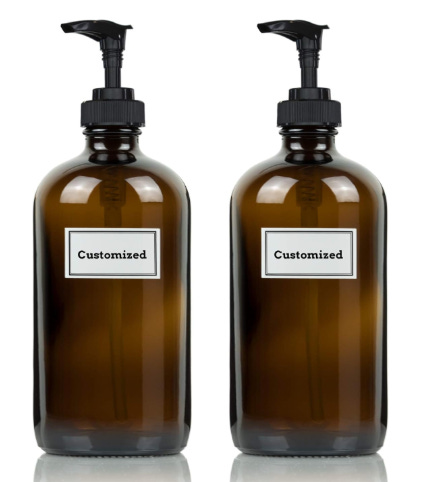Fake it ’til you make it: Counterfeit risks on Amazon
Apparel companies, or any other product line who chooses not to sell their products on Amazon, take a huge risk. Considering 89% of consumers reportedly choose the e-commerce site as their go-to place to shop online, the likelihood of losing potential customers is pretty high. When apparel companies like Nike opted out in 2019, other big-name companies took notice.
Because Nike has been around since the early 1960s, it has already made a name for itself and can arguably afford to take or leave Amazon’s online shopping placement. However, Nike walking away left consumers wondering whether Nike items that they find on the site are legitimate and sold through third-parties or counterfeit items trying to get by.
And judging from several recent lawsuit that have become increasingly common among social media influencers, Amazon’s online marketplace and luxury brands, online customers are caught in the middle of a rush of knockoffs and controversy.
In 2019, a joint lawsuit was filed against Buffalo, N.Y.-based Kaitlyn Pan Group, LLC. for allegedly selling a counterfeit version of Valentino’s Rockstud pump. When Amazon shut down the seller’s account, Kaitlyn Pan Group allegedly continued to sell its own version of the shoe on its website and went as far as applying for a U.S. trademark.
Whether users knew that they were buying a knockoff version is on a case-by-case basis. However, considering Amazon has a Transparency option (product serialization service used to identify individual products and prevent counterfeits from reaching customers), there’s a pretty good chance Amazon consumers were more interested in getting “close enough” items rather than the authentic label.
ADVERTISEMENT ~ Amazon
As an Amazon affiliate, I earn a percentage from purchases with my referral links. I know some consumers are choosing to boycott Amazon for its DEI removal. However, after thinking about this thoroughly, I want to continue promoting cool products from small businesses, women-owned businesses and (specifically) Black-owned businesses who still feature their items on Amazon. As of the first date of Black History Month 2025, each new post will ALWAYS include a MINIMUM of one product sold by a Black-owned business. (I have visited the seller’s official site to verify that Amazon Black-owned logo.) I am (slowly) doing this with older, popular posts too. If you still choose to boycott, I 100% respect that decision.

In 2020, a similar problem came up and got a little trickier. Social media influencers Kelly Fitzpatrick and Sabrina Kelly-Krejci (along with 11 other individuals and businesses based in the U.S. and China) were linked to a number of counterfeit products on Amazon. From November of 2019 until November of 2020, CNBC reports that these two social media influencers would link to items on Amazon’s site to get a percentage of the profit via the Amazon Associates program.
Advertised as a program for “tens of thousands of creators, publishers and bloggers,” Amazon Associates would pay up to 10 percent in Associate commission from qualifying purchases and programs. Commission sales would be dependent upon the customer purchasing the items via the Associates’ customized link. Amazon regarded influencers who qualified for this program as those who have a YouTube, Instagram, Twitter or Facebook account with a high number of followers and other qualifiable engagement metrics in their social media presence.
In an ideal world, social media influencers and a multi-billion-dollar company like Amazon is the perfect collaboration. However, in Amazon’s lawsuit, Fitzpatrick and Kelly-Krejci were accused of linking to counterfeit items sold through third-party companies instead of the pricier versions (if sold at all on the site). Even after Amazon removed Fitzpatrick and Kelly-Krejci from the Amazon Associates affiliate program for linking to off-brand items, the two were allegedly able to get around this ban by then sharing hidden links on their own social media platforms.
When their followers clicked the “hidden link” and bought specific items, the online shoppers would really end up with something different—the kind of counterfeit items that these two were banned from the Amazon Associates program for advertising. Some of the items included knockoff bags, belts, purses and wallets that looked like luxury items (ex. Gucci and Dior).
However, by them being knockoffs, the luxury companies were reportedly receiving no profits, leaving Amazon at risk of legal concerns. (Reed, an authorized distributor, does sell luxury items like Gucci, Movado and Rolex on the Amazon store. Other luxury brands are also available by invitation only for Amazon Prime members in Amazon’s Luxury Store.)
Amazon was able to confirm the bait-and-switch ruse from Fitzpatrick and Kelly-Krejciby by posing as customers (via the Counterfeit Crimes Unit developed in the summer of 2020) to confirm that the received items were indeed counterfeit luxury items and not the displayed images on the Amazon page that customers (i.e. their social media followers) should have received.
The lawsuit requests unspecified damages from Fitzpatrick and Kelly-Krejci. If Amazon wins, it will also bar them (and influencers like them) from selling or promoting any products on their e-commerce site.
Editor’s Note: (Note: This post was originally written for an Upwork client via now-defunct GoalsTV. However, updates and tweaks have been made.)
Did you enjoy this post? You’re also welcome to check out my Substack columns “Black Girl In a Doggone World,” “BlackTechLogy,” “Homegrown Tales,” “I Do See Color,” “One Black Woman’s Vote” and “Window Shopping” too. Subscribe to this newsletter for the monthly post on the third Thursday.
If you’re not ready to subscribe but want to support my writing, you’re welcome to tip me for this post! I’ll buy a dark hot chocolate on you. Thanks for reading!





